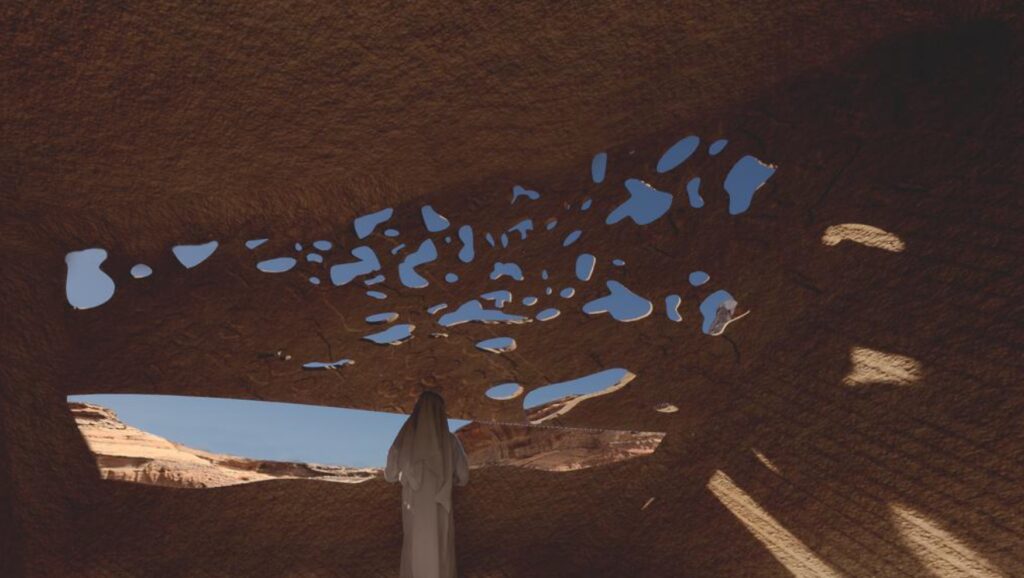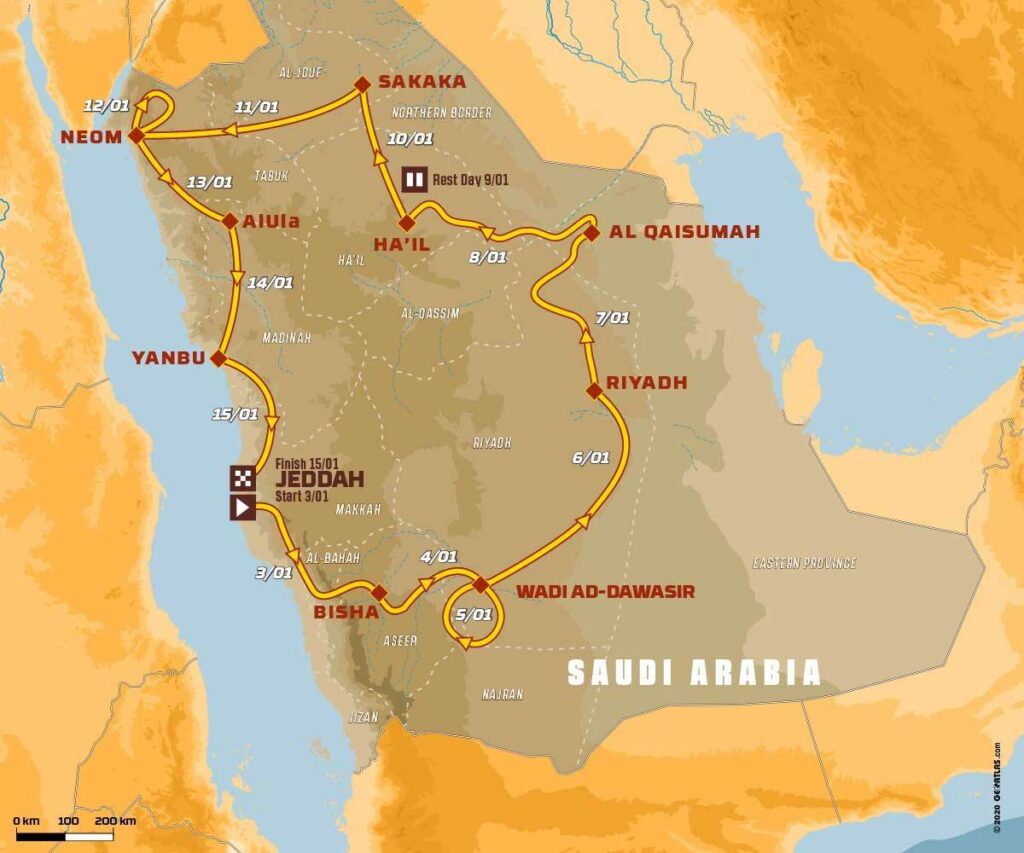SAUDI ARABIA LAUNCHES MAJOR TOURISM CAMPAIGN
The Kingdom of Saudi Arabia has launched a major tourism TV ad campaign hot on the heels of an announcement that the nation will lift travel restrictions and allow the resumption of international flights from March 31.
KSA was one of the first countries to close its borders on 21 December as a second wave of the coronavirus pandemic swept the world, boosted in Europe by the new UK and South African variants of the virus. Rather than simply banning flights from the UK and South Africa, as a number of countries did, Saudi Arabia instead opted for a blanket ban on entry from all countries, whether by air, land or sea.
The official Saudi Press Agency has published a statement from the Ministry of Interior, announcing that all land and sea ports will reopen, allowing the entry and exit of all nationals and residents. From April, Saudi citizens will be allowed to travel abroad once again, while foreign business travellers will be permitted to enter Saudi Arabia for the first time since entry was forbidden. The announcement is not reported to include the resumption of tourist visas. The resumption of travel will, says the statement, be implemented in accordance with restrictions and preventative measures established by Saudi authorities to prevent the further spread of the virus.
At the same time, KSA has launched a major TV ad campaign promoting international tourism on global networks such as CNN International.
The decision to reopen borders was announced following a significant decrease in the number of new infections in the Kingdom due to compliance with preventative measures implemented. Saudi Arabia has, like many other nations, launched a major vaccination campaign in recent weeks, based on the Pfizer/BioNTech vaccine.
Some restrictions due to concerns over the new COVID-19 variant will remain in place. Non-Saudis arriving from the UK, South Africa, India, Brazil, Argentina, and other countries where the new variant of the virus has been detected must remain outside of these countries for 14 days before entering Saudi Arabia. Saudi nationals are permitted to enter the kingdom from countries where the new variant has been found but must quarantine for 14 days and submit to two COVID-19 tests. The move follows a number of more targeted travel bans by several other countries in reaction to the new virus mutation, which was initially discovered in the southeast of England.
While commercial and business activities continue in the Kingdom, strict public health measures are in place. Establishments that open must implement enhanced sanitisation procedures, perform temperature checks of employees and patrons, and comply with social distancing guidelines. Gatherings are limited to a maximum of 50 people.
Broader promotion for internal destinations
While Saudi Tourism has launched a global ad campaign, on a more regional level, the Royal commission for AlUla (RCU) has launched the first ever destination brand campaign for AlUla, the heritage and culture centrepiece of Saudi Arabia.
Located 1,100 km from Riyadh, in North-West Saudi Arabia, AlUla is a place of extraordinary natural and human heritage. The vast area, covering 22,561 sq km, includes a lush oasis valley, towering sandstone mountains and ancient cultural heritage sites dating back thousands of years to when the Lihyan and Nabataean kingdoms reigned.
The most well-known and recognised site in AlUla is Hegra, Saudi Arabia’s first UNESCO World Heritage Site. A 52-hectare ancient city, Hegra was the principal southern city of the Nabataean Kingdom and is comprised of more than 100 well preserved tombs with elaborate facades cut out of the sandstone outcrops surrounding the walled urban settlement. The campaign, developed by RCU with creative partners Leo Burnett, includes a 90 minutes film directed by renowned cinematographer Bruno Aveillan and a suite of digital assets under the concept of The World’s Masterpiece.
In what is hoped will be a year of travel recovery, AlUla’s new brand campaign is primarily targeting domestic travellers and aimed at deepening the Kingdom’s pride and affection for AlUla as well as ultimately increasing intention to visit.
“The World’s Masterpiece is a play on both the skilful artistry of ancient civilisations who carved elaborate artworks into the rocky outcrops, as well as the pure and unspoilt beauty of the geological rock formations and landscapes sculpted by nature,” said Phillip Jones, Chief Destination Management and Marketing Officer, RCU.
AlUla is the first of the significant Saudi Vision 2030 initiatives to welcome visitors, having re-opened key heritage sites to visitors in October 2020 as a new year-round offer.
The campaign was directed by Bruno Aveillan. Born in Toulouse, France, Aveillan is one of the most distinguished and sought-after commercial directors in the world today.
Aveillan said he was creatively and emotionally inspired by AlUla and sought to convey that feeling through the film: “We wanted to convey feelings of nostalgia and the emotion of seeing the destination for the first time. AlUla is a unique place in the world, we needed to make the first ever destination film with a style that no other place could imitate.”
It is hoped that the campaign will help to achieve RCU’s visitor projections of 90k for 2021 and 130k for 2022. And while the campaign is aimed at the domestic market, and specifically three core audience segments which represent 64% of the regional affluent traveller market, Melanie de Souza, Executive Director Marketing, RCU expects it to have some organic reach digitally in international markets.
“We are already receiving a lot of interest from international travellers excited to explore a new destination with such history including ancient civilisations from the Dadanites to the Nabataeans and the Romans,” said de Souza. “The travel landscape has been irreversibly altered, but as travel slowly resumes, research tells us people will be looking for meaningful travel, vast open spaces and close to nature experiences. AlUla is well-positioned in the domestic market for all of those reasons and internationally as a new and significant boutique heritage and culture destination.”
The campaign was launched in broadcast, outdoor and digital from January 9, 2021.

Major events turn the world’s eyes towards the Kingdom
The effect of the campaigns and border openings are being largely bolstered by the arrival, for the first time, of the “Dakar” rally in Saudi Arabia earlier this month.

The race, involving more than 550 drivers from around the world, passed through a host of sites – from NEOM, a $500 billion futuristic megacity under construction, to the heritage site of AlUla and the sand dunes of the vast Empty Quarter desert.
The Chairman of Saudi Arabia’s General Sports Authority, Prince Abdulaziz bin Turki al-Faisal declared that the 2020 Dakar Rally was a showcase for the kingdom’s tourism potential.
“With the launch of the Dakar Rally here in the Kingdom, the world will see the picturesque nature of our country and its wonderful desert,” he told reporters in Qiddiya, close to the capital Riyadh in December.
The 2020 Dakar set off from Jeddah on 5 January and ended 7,800 kilometres (4,800 miles) and 12 days later in Qiddiya.
The Dakar started its history as a rally between Paris and the capital of Senegal in West Africa, then switched to South America when security became a concern. Organisers say it will remain in the Arabian peninsula for at least five years.

Meanwhile, in November, Saudi Arabia hosted the G20 Summit with world leaders online. Saudi Arabia is the only Arab country in the G20, and as the president throughout 2020 this has been a momentous time for the kingdom.
With the world’s media lens on Saudi Arabia, the modernisation and transformation of the kingdom has been projected globally, helping to shift perception and grow awareness whilst adding power to its “Vision 2030” strategy.
